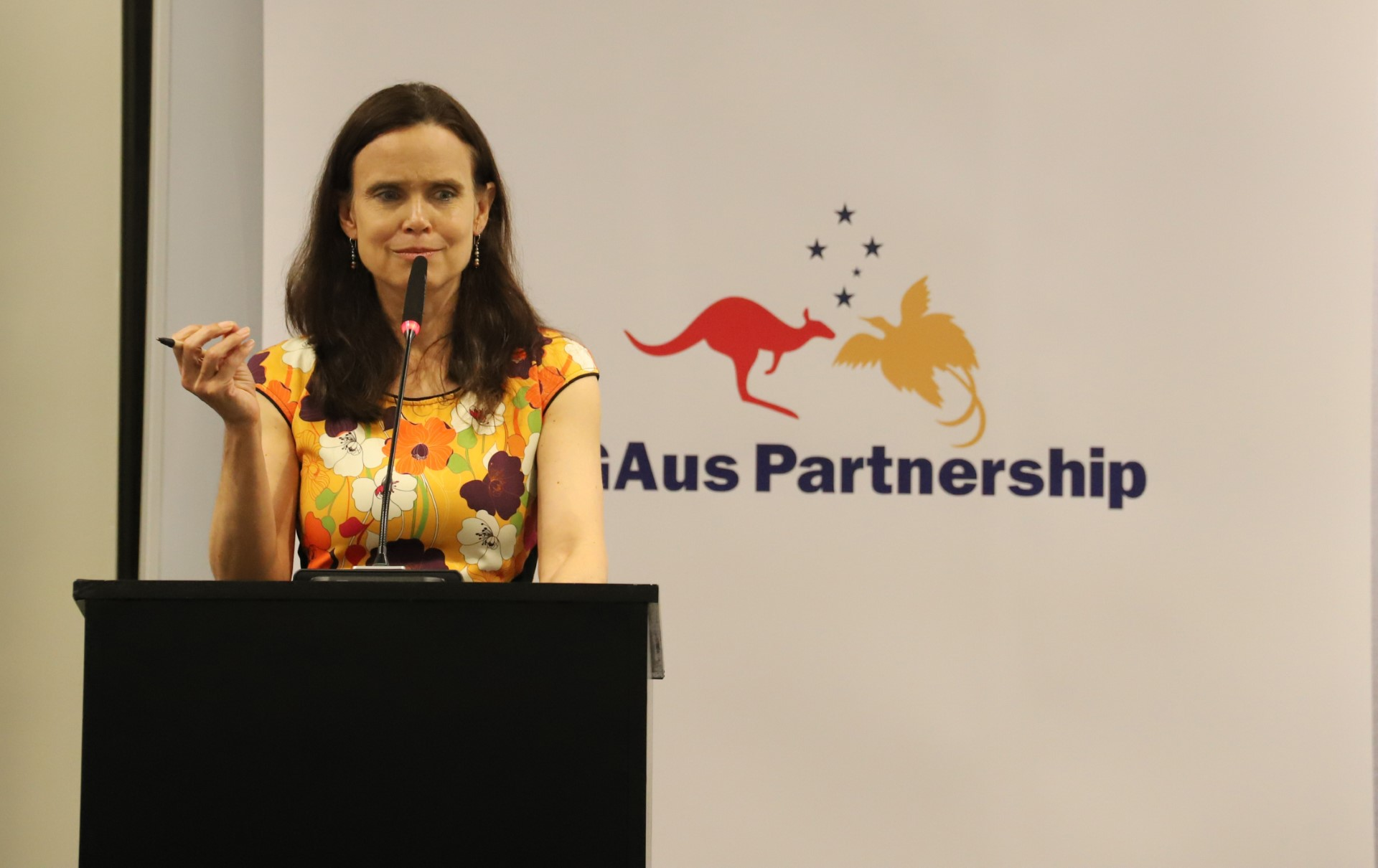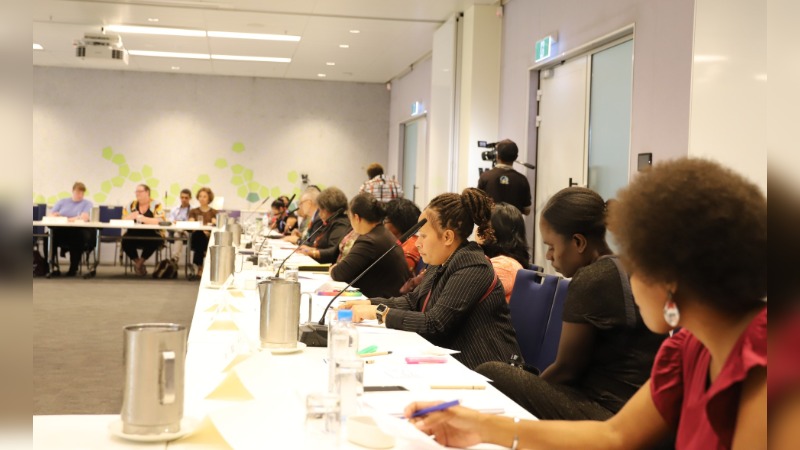Australia’s Ambassador for Gender Equality, Ms Stephanie Copus Campbell joined a gender equality roundtable chaired by PNG’s Department of Community Development and Religion Acting Deputy Secretary, Ms Karen Haive at the Hilton Hotel in Port Moresby on today, 15th August 2023.
The dialogue brought together representatives from PNG government, the development sector, and civil society for dialogue on gender equality in PNG.
Following the release of the PNG Government’s gender equality plans and targets for the next five years under the Medium-Term Development Plan IV, 2023 to 2027 (MTDP), the roundtable enabled gender equality representatives in PNG to meet and engage in meaningful discussions about plans to advance gender equality in the country.
Acting Deputy Secretary for Department for Community Development and Religion, Ms Karen Haive stated that Gender equality and women’s advancement remain PNG Government’s priority although there has been a slow progress made in the implementation and achievement of the gender equality objective.

“The Department for Community Development & Religion is committed to improving gender equality and women’s advancement through review of the National Women’s and Gender Equality Policy 2011-2015.”
“The revised Policy will provide new priorities and strategies for all Development Partners and stakeholders to address and advance gender equality agenda in PNG.”
During the roundtable dialogue, participants had the opportunity to share their experiences, learn from each other, and reflect on the work and progress achieved so far towards gender equality in PNG.
Australia’s Ambassador for Gender Equality, Ms Campbell, highlighted at the dialogue that Australia is committed to gender equality and will continue to work in partnership with PNG to ensure women and girls in all diversity throughout the country are safe and have equal share in resources, opportunities, and decision-making with men and boys.
“Ensuring gender equality is a shared priority for both Australia and PNG, because it is crucial to the economic growth, development, and stability of both countries and for our Pacific region.”

